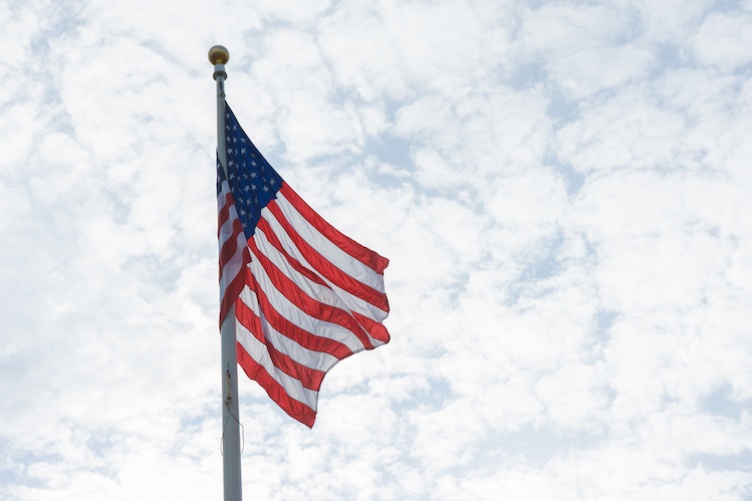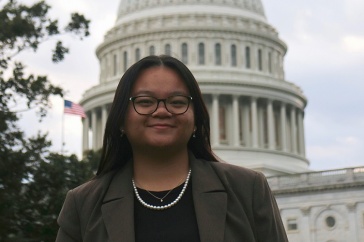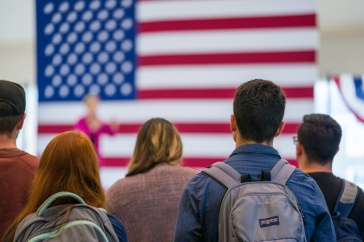
“I do solemnly swear (or affirm) that I will faithfully execute the Office of President of the United States, and will to the best of my Ability, preserve, protect and defend the Constitution of the United States. — Presidential Oath of Office
If the axiom had never been used before, the Jan. 20 swearing in of President Joe Biden and Vice-President Kamala Harris would be, as they say, one for the history books.
In the months leading up to the inauguration, a divided country has seen tensions mount, accusations grow and claims of a ridged election culminate in violence in our nation’s capital. Yet once again, as it has since that 1789 April day when George Washington swore to “preserve, protect, and defend the Constitution of the United States,” the framework of our government has been upheld. A new president, the oldest in the nation’s history, has been sworn in while Harris has made her own history as the first woman, the first Black woman and first person of South Asian descent elected vice president of the United States.
“President Biden’s inauguration is absolutely a symbolic opportunity for Democrats and Republicans to turn the page on the current divisive politics era and seek common ground."
“It’s striking to see a woman of color be the first to break through this particular glass ceiling,” says Ellen Fitzpatrick, author of “The Highest Glass Ceiling: Women's Quest for the American Presidency” and UNH professor of history. “As Shirley Chisholm long ago pointed out in her race for the presidency, women had worked so hard for the Democratic Party for so long but we’re rarely advanced as national candidates. It’s a historic moment that accents the ways in which American political life has widened even as we witness the constraints so many continue to face.”
And it’s a historic moment that, while fraught with monumental challenges, gives Americans hope. The theme of President Biden’s inauguration was “America United.” Whether that will come to fruition will be tested in the days and months ahead. As he said in his inaugural address, it will take everyone working together.

“President Biden’s inauguration is absolutely a symbolic opportunity for Democrats and Republicans to turn the page on the current divisive politics era and seek common ground,” says Emily Baer, assistant professor of political science. “But Biden alone cannot address the longer-term challenges to unity — declining public trust in institutions, partisan polarization, factionalism in both political parties and a political environment that incentivizes elected officials at all levels of government to avoid compromise. It would take a sustained effort by political leaders and average citizens working together to move towards unity.”
And still, there is optimism.
“I’m very hopeful about the prospect of a new administration, eager to get to work exercising the leadership of the federal government with the expertise of dedicated and knowledgeable public servants,” Fitzpatrick says. “It has been a perilous time for the country and its citizens. If anyone doubted it, and many do I’m afraid, we’ve learned how important character can be to the American presidency. It’s been such a sobering time — tragic amid the pandemic — that I do think Biden can make a difference by addressing the critical need for national action and leadership.”
That leadership will address a long list of critical issues that demand the new president's immediate attention. Political science professor Dante Scala speculates COVID-19 and its crippling impact on the economy will be among those.
“Along with ending the pandemic, the Biden administration will focus its efforts on economic relief,” Scala says. “And it’s very possible that there will be bipartisan support for sending additional money to Americans, especially jobless Americans, to tide them over until the virus is under control.”
Baer agrees.
"COVID will absolutely dominate early policy decisions, especially related to health care and the economy,” she says.” Strategically, Biden would be wise to also focus on issues important to progressives in Congress, such as climate change and the environment. Given the close margins in Congress, Biden will need their support to pass anything, and these are the types of issues that will galvanize their support, and potentially appeal to younger voters.”
Adds Andrew Smith, professor of practice in political science, “Joe Biden faces a number of challenges in his first months as president, some within his control but most outside. First, he has to present a unified Democratic platform to Congress, which will be difficult given the rifts in the party. I do not expect that he will get any help from Republicans, they are already looking toward the 2022 midterm elections. But recalling (former prime minister of the United Kingdom) Harold MacMillan’s apocryphal response of ‘events, dear boy, events’ to a journalist’s question about what would determine his government’s policy, Biden will be confronted by events which his administration must deal with. COVID-19, the economy, an increasingly militaristic China all loom on the horizon.”
-
Written By:
Jody Record ’95 | Communications and Public Affairs | jody.record@unh.edu


















































